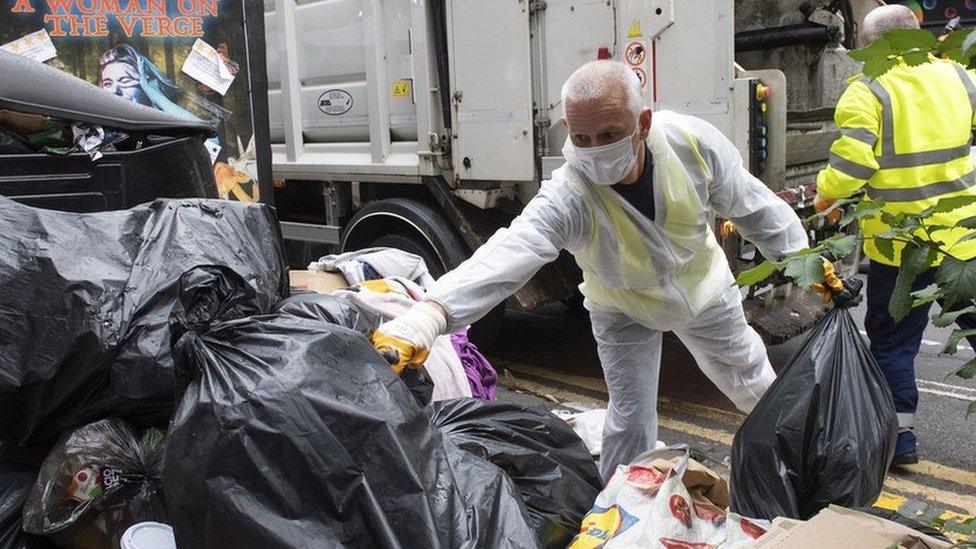Nicola Sturgeon holding talks over council strikes
- Published
- comments
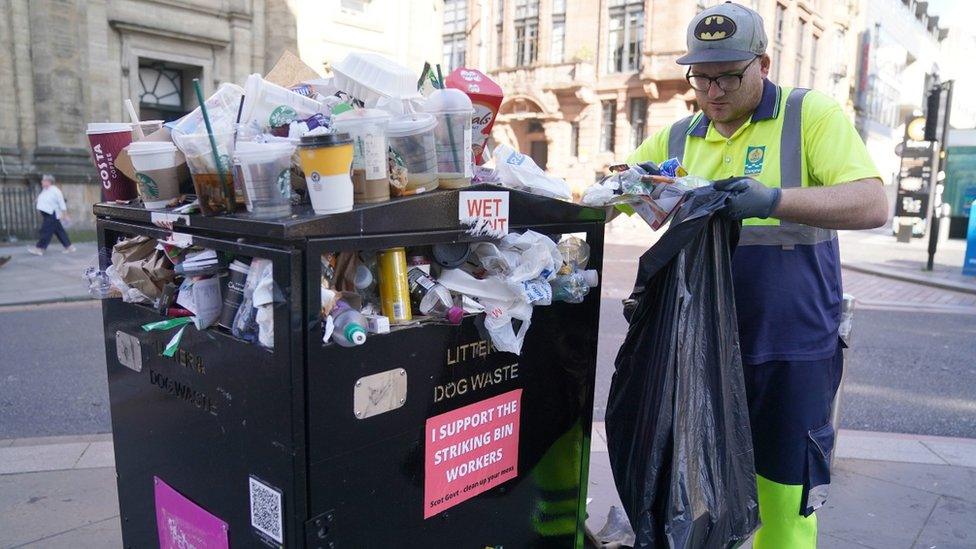
Workers in Glasgow began emptying overflowing street bins after the first wave of strikes ended on Thursday morning
Nicola Sturgeon is meeting unions and council leaders over the pay dispute that brought strikes across Scotland.
The first minister is holding talks in Edinburgh on Thursday night as council workers seek an improved pay offer.
Ms Sturgeon is meeting council leaders in St Andrew's House followed by talks with union representatives.
Unions launched industrial action on 18 August. The Scottish government has not said what Ms Sturgeon plans to propose to try to end the dispute.
Councillor Shona Morrison, president of local government body Cosla, told BBC Scotland: "We are still in very active discussions at the moment and really keen to find a solution as soon as we can."
Earlier union sources said the talks were positive and that the discussion is moving in the right direction.
The meeting comes as bin collections around Scotland resumed on Thursday after a first wave of strikes.
There will be further strikes in 19 councils areas from 6-13 September.
The walkout ended on Tuesday in Edinburgh and on Thursday in 13 other areas, including Glasgow and Aberdeen.
Glasgow City Council warned residents there would be a "significant delay" to rubbish collections because of the extensive backlog.
City of Edinburgh Council announced further changes to its collection schedule as the clear-up continued, urging residents to help by storing extra waste for a "little longer".


This is the first time Nicola Sturgeon has become directly involved in this dispute between councils and their workforce. Her deputy John Swinney has taken the lead for the Scottish government until now.
The first minister has been criticised by the Conservatives and others for taking a hands-off approach while rubbish was piling up in Edinburgh during the festivals.
With further, and more widespread, disruption to bin collections planned and hundreds of schools and nurseries facing closure next week, Ms Sturgeon has decided to try and broker a compromise.
It is not clear what carrots or sticks she might bring to her discussions with councils and trade unions but the Scottish government has previously insisted no more money is available.

Edinburgh council leader Cammy Day said: "Our crews have been working hard to catch up on collections and making every effort to collect significant volumes of litter across the city.
"The clear up is progressing well and we can already see the benefits of having the crews back out on the street keeping the city clean."
Public Health Scotland had warned of a human health risk from overflowing waste and advised councils to decontaminate areas where bins overflowed.
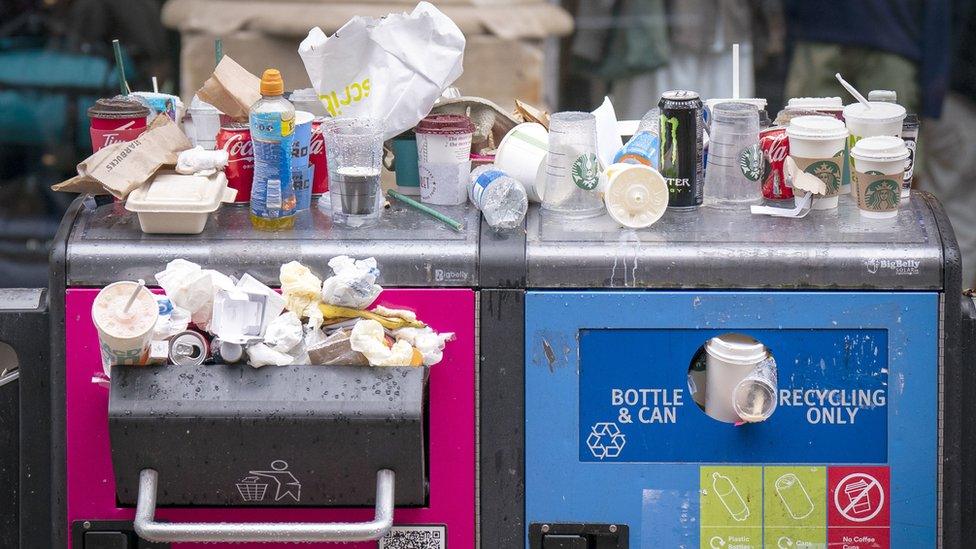
Further strikes in many local authority areas are planned for next week
On Monday Unite, the GMB and Unison rejected an increased pay offer.
The unions had been seeking an agreement from Cosla similar to the one made to council workers in England - which included a £1,925 flat rate pay increase.
Bin strikes around the country began after they rejected an initial pay offer equivalent to a 3.5% increase.
The action escalated last week when refuse workers at a further 20 local authorities walked out despite a revised 5% offer.
The second wave of strikes is due to begin on 6 September, with hundreds of schools and nurseries also scheduled to close.
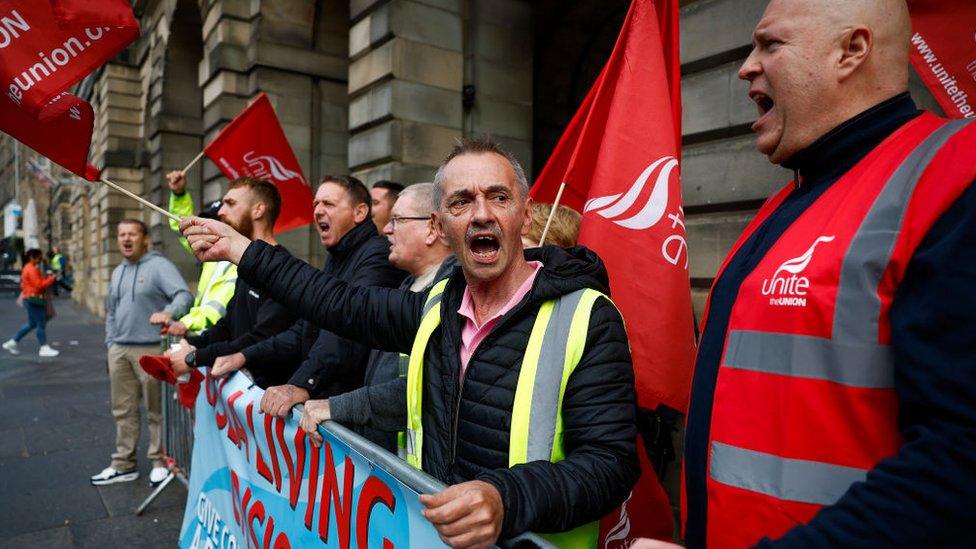
Refuse workers in Scotland want Cosla to match the offer made to their counterparts in England
Cosla's offer of a £1,925 pay uplift matched the offer to council workers in England - but only part of this payment would be consolidated into staff salaries. The rest would be given as one-off cost-of-living payments.
Unions said this meant lower-paid staff would not benefit as much as those on higher wages.
The Scottish government has given an additional £140m to councils to help fund a pay increase for staff.
It has also offered a further £200m over two years to provide a cost-of-living payment to workers earning below £39,000.
Deputy First Minister John Swinney has said there is no more money available to fund further pay increases as the government's finances are "finite".
"I have managed to find one-off sums of money to ensure that people on low incomes are able to get a £2,000 increase in their salary now. But the government cannot offer any more money," he said.
Cosla said it was disappointed that unions had turned down an offer that was at the "absolute extremes" of affordability.
Resources spokesperson Katie Hagmann said: "We have done everything we possibly can to get to this stage and this offer - which is still on the table - is as good as it gets."
- Published30 August 2022
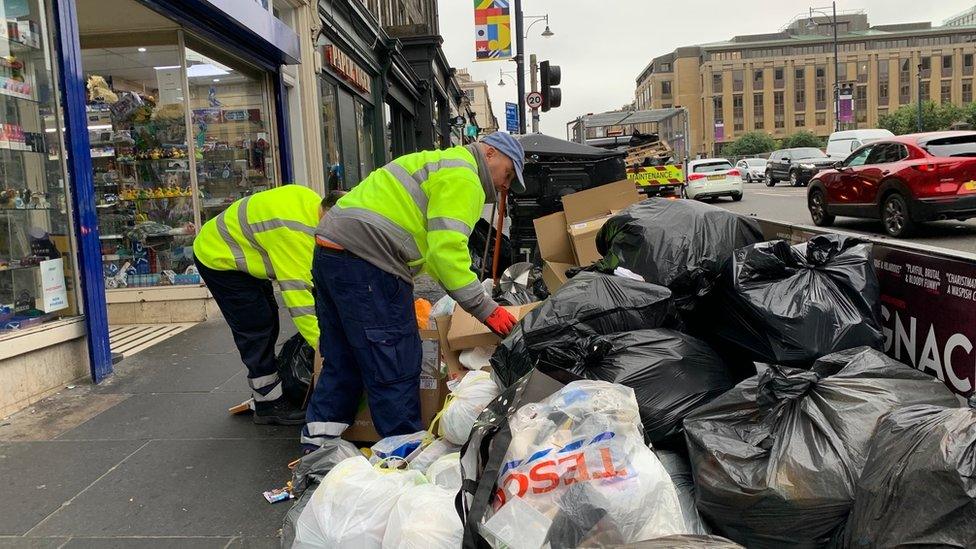
- Published30 August 2022
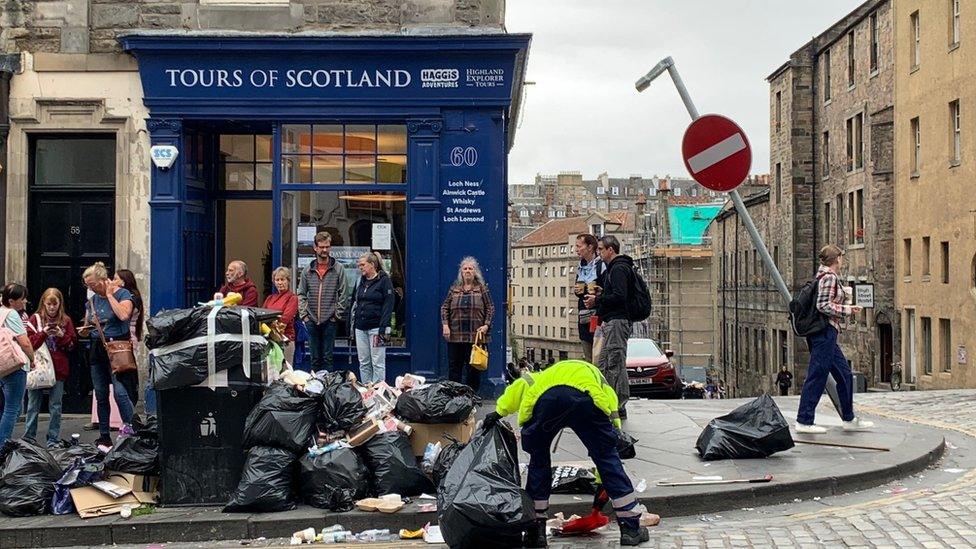
- Published30 August 2022
